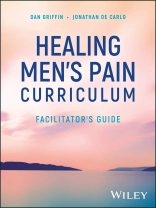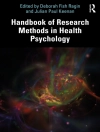A 36-hour curriculum designed to help men overcome past trauma and develop the skills they need to live safe and caring lives
Healing Men’s Pain Curriculum helpsmale-identified participants create a vision of the men they want to be and provides them with the awareness, tools, and confidence to achieve that vision. Each of the 18 two-hour, cofacilitated sessions includes activities, exercises, and experiential opportunities enabling each participant to connect with the content on a personal level. The program is wide-ranging and encompasses a variety of topics to help participants develop increased self-awareness to enhance their relationships. Participants explore their childhood, adolescent, and adult trauma; relational struggles, particularly issues of healthy attachment; and other issues that male-identified individuals often experience.
The material in Healing Men’s Pain Curriculum will stretch both participants and facilitators alike. The sessions are designed to take a deep and comprehensive look at everything that blocks men from being the best men they can be. The curriculum speaks to all learning styles through the use of art, physical movement, and roleplays. Participants are given additional learning opportunities in the form of assignments to complete between sessions.
These assignments build upon the roleplays and in-session practice to help participants translate the material directly into their own lives.
- Help men address their traumas, develop self-awareness, and build healthier relationships in recovery programs, mental health groups, or other settings
- Pick and choose from 18 intentionally designed lessons—or use the entire curriculum in order
- Access engaging activities that get participants moving and talking despite diverse learning styles and backgrounds
- Focus on male socialization, narrative therapy, and interactive learning to help participants develop understanding of themselves and others
Written by an expert on masculinity with a Master’s degree in gender studies, this curriculum is an excellent foundation or supplement to addiction programs, trauma groups, men’s groups, church groups, and beyond. Designed as a compliment to Helping Men Recover.
Spis treści
1. What the Facilitator Needs to Know
2. Facilitating the Program
Session 1: Grounding & Safety
Session 2: The Man Rules: Don’t Let the Rules, Rule You
Session 3: Toxic Water
Session 4: Creating Healthy Relationships
Session 5: Trauma: Facing Our Wounds
Session 6: All in the Family
Session 7: Beneath The Surface
Session 8: The Man Rules, Intimacy, & Attachment
Session 9: The Man Rules, Intimacy, & Safety
Session 10: The Man Rules, Intimacy, & Violence
Session 11: The Man Rules, Intimacy, & Sex
Session 12: Growing Through Grief and Loss
Session 13: Post Traumatic Growth & Resilience
Session 14: Breathing Under Water
Session 15: Writing Our Story
Session 16: Deconstructing Our Story
Session 17: Reframing the Narrative: From Boys to Men
Session 18: Framing A Healing Journey
O autorze
DAN GRIFFIN, MA, is the author of A Man’s Way Through Relationships and A Man’s Way through the Twelve Steps, and co-author of Helping Men Recover and the forthcoming What Men Would Tell You if They Weren’t Too Busy Watching TV. Dan earned a Master’s degree in Sociology from the University of Kansas.
JONATHAN DE CARLO, CAS, Jonathan is a Certified Addictions Specialist (CO), with over 28 years of experience in addiction/recovery & mental health care. He is an international consultant and trainer currently serving as the CEO of C4 Consulting, a subsidiary of C4 Recovery Foundation. He is co-owner and Director of Operations for Recovery 360° with locations in Arkansas and Colorado. His diverse experiences include work with adolescents and adults in residential and outpatient care settings, with an emphasis on emotional management, self-concept revision, and trauma recovery. Jonathan has enjoyed roles as a clinician and administrator, to include clinical director, executive director, regional program director, and chief executive officer. His educational background in psychology, philosophy, and theology ground his work, helping individuals, families, and organizations develop comprehensive solutions in their healing journeys. Jonathan was raised in Central New York State, and resides outside of Little Rock, Arkansas with his wife Ronny, and has been in long-term recovery from addiction since 1992.












